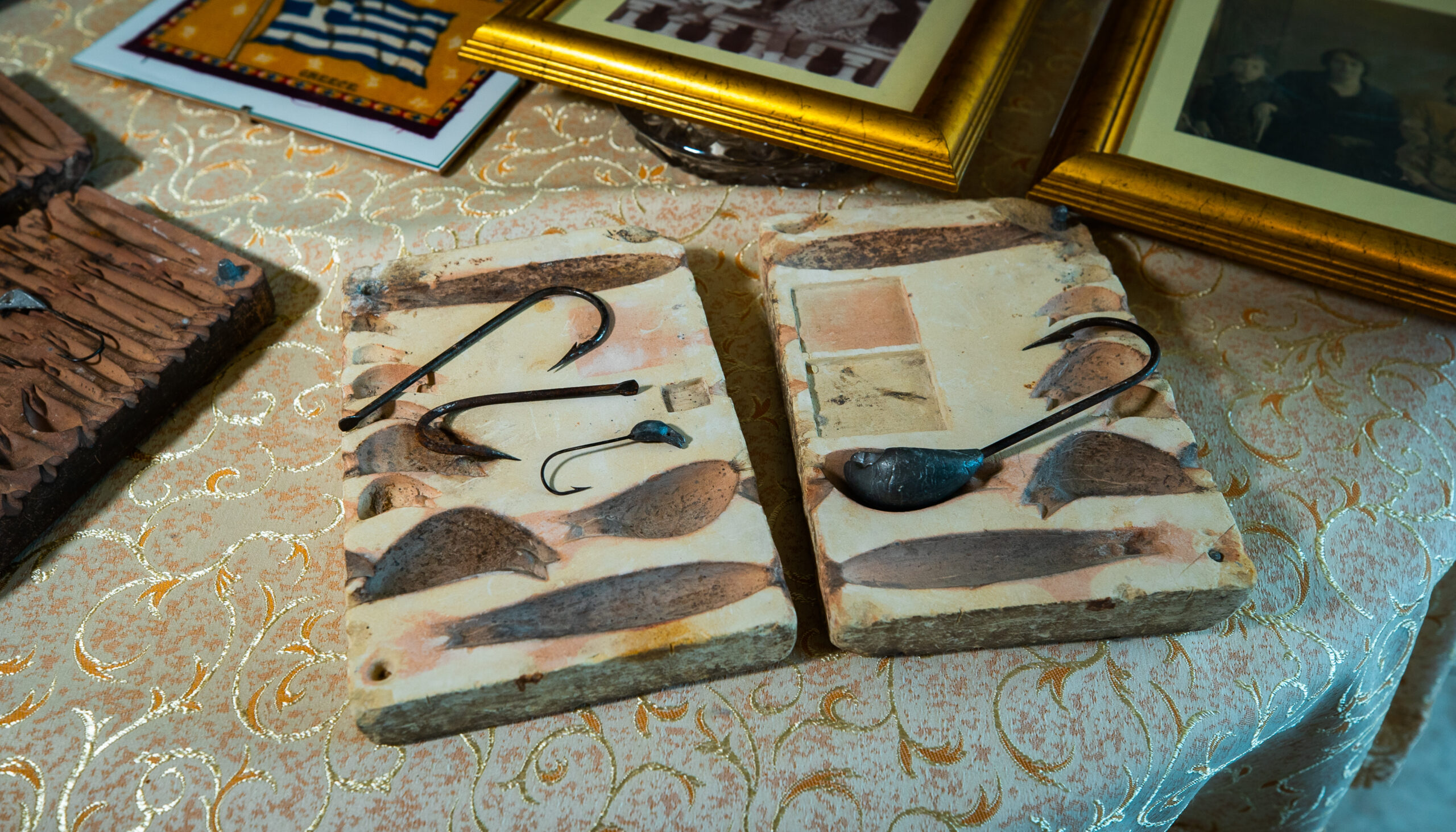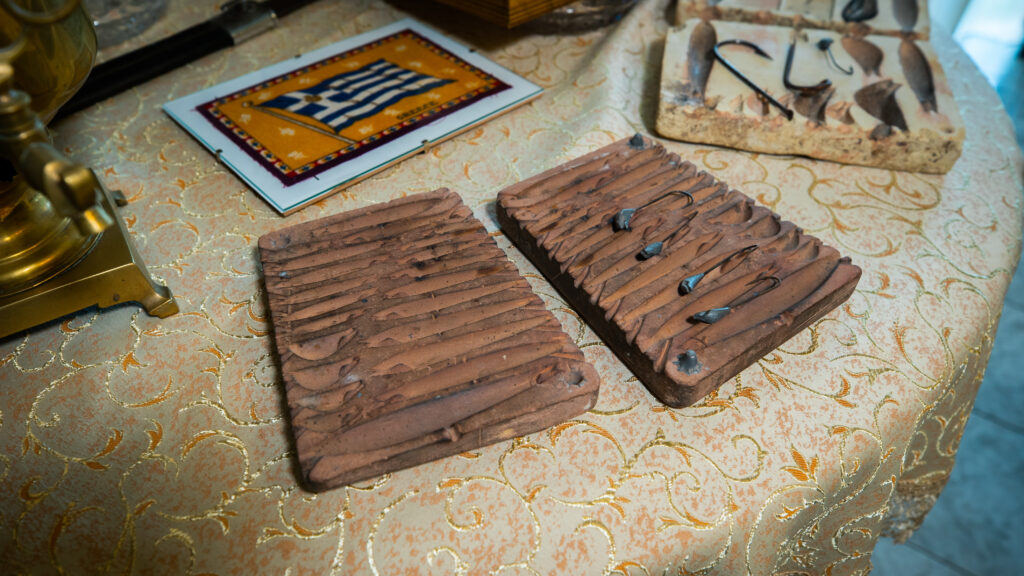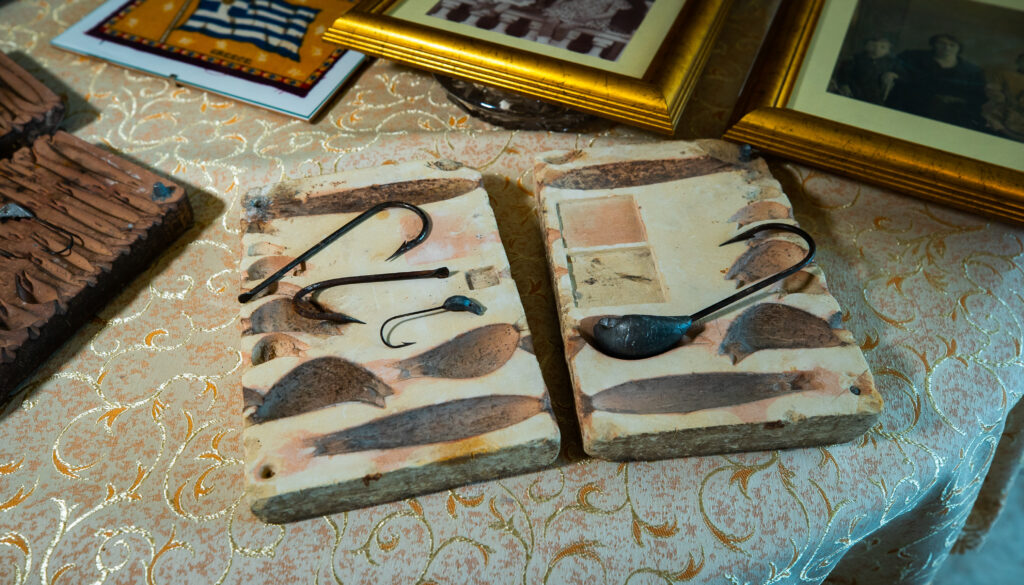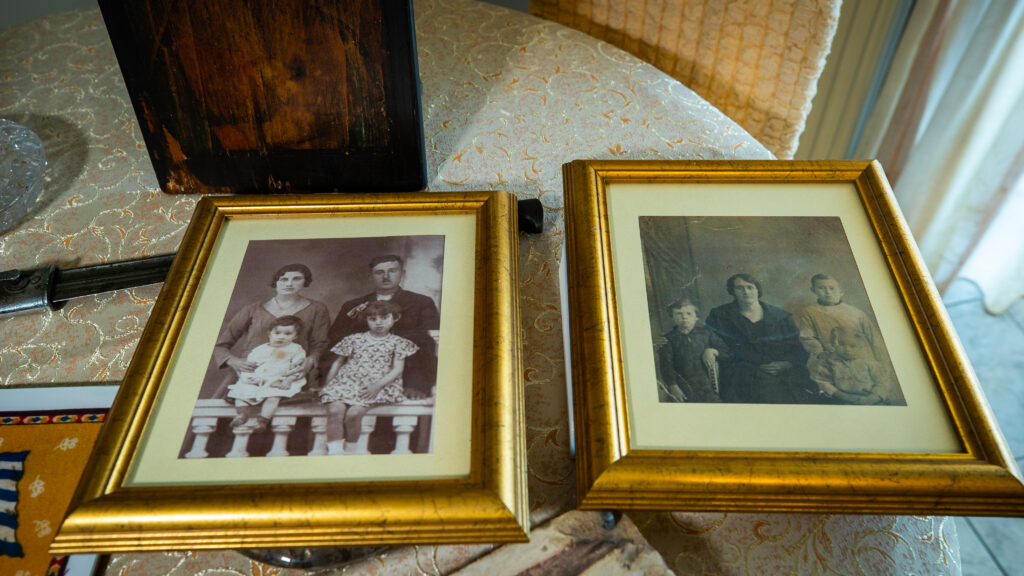Georgios Trechas and Konstantinos Raspitsos were born at the end of the 19th century on Englezonisi, a small island in the Gulf of Smyrna with a population of around 2,500 people, mainly Christians. From a very young age, they started working as fishermen to provide for their families, since fishing was a common occupation among the islanders, and by the beginning of the 1920s they both had their own fishing boat. According to the family history, it was on these boats that they left the island at the beginning of September, 1922, when the mass movement of Greek populations away from the shores of Asia Minor was nearing its peak.
Georgios Trechas, along with his young son Dimitris, and Konstantinos Raspitsos met again at the makeshift refugee settlement of Drapetsona where they started over: new homes, new boats, new lives. Of the few belongings they brought with them, two stone moulds for fishing hooks stand out and are now in the possession of Konstantinos Trechas, Georgios’ grandson. The fishermen used to improvise the tools of their trade at home by melting iron in a small pot, pouring it into the moulds, placing the hook, and shaping the components they needed for fishing. It was through fishing that they managed to take care of their families, even during the hard times after their arrival in Greece or during the German occupation.
Konsantinos Trechas’ refugee heritage comprises these stone moulds, the songs of his grandmother, Eirini Bogiatzi (originally Vogiatzi), recorded by Melpo Merlie, as well as his own memories of the fishing boats and the makeshift shacks of Drapetsona.
—
The interview and the photo shoot documenting the objects were conducted as part of the research project “Fleeing objects”, which was funded by the Stavros Niarchos Foundation Public Humanities Initiative and implemented at Columbia University during the period 2020-2021.




